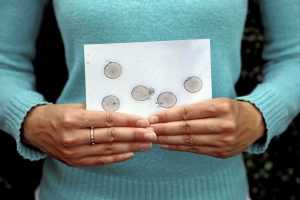A Woman’s Perspective: Freezing Eggs is a Real Option for Women

Since technology leaders Apple and Facebook took the bold step last year to offer a coverage plan for female employees wanting to freeze their eggs, the public has become increasingly interested in “human oocyte cryopreservation” — the scientific name for egg freezing. Cynics wonder if this is yet another ploy to make sure women do not take time off for pregnancies during their most productive years.
Egg-freezing technology has only recently become reliable enough to offer as a real reproductive option for women. A few regional clinics in the Bay Area have been studying this technology, and can currently boast that the quality of an embryo is the same whether it came from a frozen egg or from a fresh one. However, not all infertility clinics are the same and caution needs to be used when considering this reproductive choice.
While egg freezing effectively suspends the reproductive biological clock — giving women more choices on when they can start or expand their families — it is still a relatively rare and novel medical service.
In a nutshell, the relatively painless procedure involves retrieving adequately matured eggs from the women while under intravenous sedation, using a needle and ultrasound guidance. The retrieved eggs are immediately frozen. Prior to retrieving the eggs for freezing, the patient undergoes a hormone-injection process that starts at menses and averages 10 days. The retrieved eggs are frozen for a period of time, utilizing a freezing temperature of minus-196 degrees Celsius. When the woman is ready to attempt pregnancy (this can be many years later) the eggs are thawed, injected with a single sperm to achieve fertilization and transferred to the uterus if the in-vitro growth becomes an embryo. Based on recent scientific evidence, long-term storage of frozen eggs does not result in any decrease or deterioration in egg quality.
When considering the option of egg freezing it is important to consider and discuss all risks and benefits known thus far in this relatively new science (the first reported human birth from a frozen egg was 1986). It is also important to look for egg-freezing professionals with a track record of experience, safety and success. Although egg freezing may not be the optimal choice for every woman, it can certainly be beneficial for women:
• Needing to delay childbearing and wishing to preserve their fertility for the future — fertility is known to decline with age, thus freezing eggs at an early reproductive age will best insure chances for a future pregnancy. Further, unlike the ovary and oocytes (eggs), the uterus does not age and can carry a pregnancy well in to the 40s and 50s.
• Diagnosed with some forms of cancers — depending on age, type of cancer and cancer-treatment plan, the procedure offers an opportunity to preserve a women’s eggs and fertility prior to chemotherapy, surgery or radiation.
• With religious or moral objections to storing frozen embryos — fertilizing only as many eggs as will be utilized in the IVF process and freezing the remaining unfertilized eggs offers a positive solution if concerns are present about freezing embryos.
• With a family history of early menopause — egg freezing offers a chance to preserve eggs before they are all depleted.
• In situations in which a patient has lost an ovary, this might well insure eggs for a future date.
Pregnancy rates from frozen eggs usually depend on the women’s age at the time she freezes her eggs, but is not be affected by the age at which she comes back to use them. Therefore, the chance of future pregnancy in older women is related to their age at the time of freezing.
It will take many years of follow-up to ensure that babies born from egg-freezing technology have no higher rates of birth defects than those conceived through other means, but the largest published study to date of 900 babies from frozen eggs showed no increased rate of birth defects when compared to the general population.
Fees for egg freezing reflect the cost of IVF. Exact statistics on the number of babies born from frozen eggs is estimated to be about 5,000 births worldwide.
To read the original article for the Marin Independent Journal, click here.
The Marin Independent Journal welcomed Dr. Lizellen La Follette as their health columnist from 2015-2018. Her A Woman’s Perspective column appeared every fourth week in the Journal during these 3 years.
